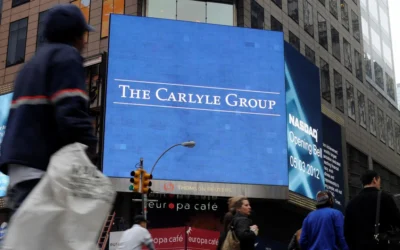Private equity firms are paying more for leveraged buyouts to keep pace with soaring valuations of acquisition targets, making some investors leery of whether the industry can keep delivering on promises of lucrative returns.
The booming stock market and cheap debt financing have helped push leveraged buyout prices to a record high, driven by sectors that have grown as people work and stay at home during the COVID-19 pandemic, such as technology and business services.
Private equity firms paid an average 13.2 times a company’s annual earnings before interest, tax, depreciation, and amortization (EBITDA) for U.S. leveraged buyouts in 2020, an all-time high, up from 12.9 times in 2019, according to financial data provider Refinitiv.
Some investors are growing concerned about whether buyout firms can deliver the 15% to 20% annual returns they target when they raise new funds.
“We can tilt towards better valuations and opportunities,” said David Holmgren, who oversees $3.5 billion in endowment and pension assets at Connecticut-based hospital system Hartford HealthCare. He said he has been shifting his portfolio away from private equity funds that invest in pricey buyouts to those that specialize in middle-market deals and emerging markets.
Many banks have grown reluctant to help finance leveraged buyouts at inflated valuations, exacerbating investor concerns about overpaying, investment bankers and private equity executives said. Private equity firms must write bigger equity checks, making it harder to juice returns through use of debt.
The share of U.S. leveraged buyouts where private equity firms put down more than 50% of the deal price as equity jumped to 41% in 2020 from 25% in 2019, according to Refinitiv.
“Bigger equity checks are needed for deals where prices are high. For a business with any growth, some buyers are willing to pay astronomical prices,” said Rob Fullerton, global head of leveraged finance at investment bank Jefferies Financial Group Inc.
For example, buyout firms TPG Capital and TA Associates paid the equivalent of 16.5 times the annual earnings of Planview Inc when they acquired the U.S. work management software company in December for $1.6 billion from Thoma Bravo, another private equity firm. Thoma Bravo had paid 6.7 times the annual earnings of Planview when it first acquired it from Insight Venture Partners for $800 million in 2017, according to financial data providers Refinitiv and Pitchbook.
TPG declined to comment, while TA Associates did not respond to a request for comment.
While some private equity firms are willing to place risky bets on fast-growing technology companies that have yet to turn a profit, banks are more reluctant, said Gero Wittemann, partner and co-head of U.S. at Hg, a London-based private equity firm with $30 billion in assets under management.
“These companies inherently are more difficult to leverage,” Wittemann said.
Source: Reuters
Can’t stop reading? Read more
Carlyle and Goldman Sachs open private credit funds to Willow users with $10,000 minimum
Carlyle and Goldman Sachs open private credit funds to Willow users with $10,000 minimum Carlyle,...
EQT, PAI, and Stone Point shortlisted for €2bn takeover of Castik-backed Global Group
EQT, PAI, and Stone Point shortlisted for €2bn takeover of Castik-backed Global Group EQT, PAI...
CAIS Advisors unveils retail vehicle giving investors a stake in elite sports and media
CAIS Advisors unveils retail vehicle giving investors a stake in elite sports and media Eldridge...




